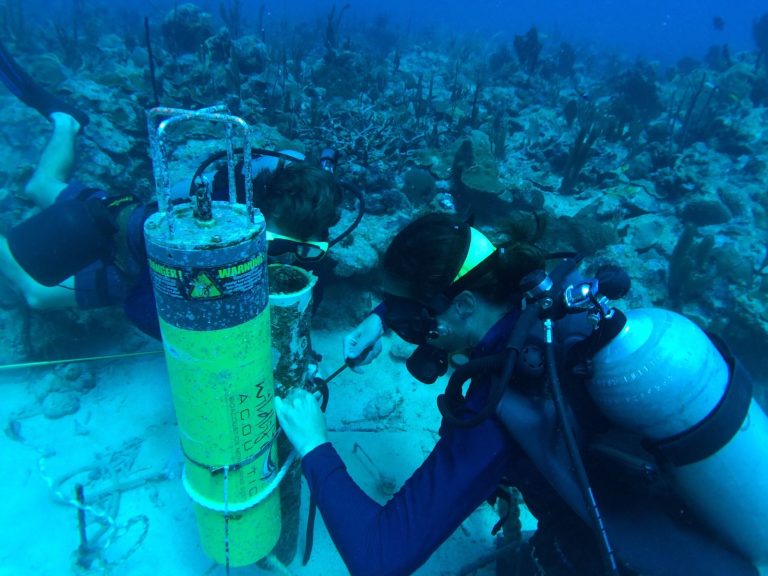
Passive listening devices placed on Puerto Rico’s coral reefs recorded how Hurricane Maria disturbed marine life. The hydrophones recorded the “soundscape” before, during, and after last September’s Category 4 hurricane, revealing a drop in fish choruses and snapping shrimp activity during the storm and for a few days following the storm.
NCCOS scientists and their partners installed the hydrophones at three sites off Puerto Rico’s southwest coast early last year to demonstrate how sound can be used to understand environmental disturbances and assess ecosystem health. Passive listening devices have monitored noise in the ocean and the sounds of marine animals for decades (e.g., whales). However, recent technological improvements now allow listening devices to monitor aquatic (and terrestrial) ecosystems for months at a time and with higher quality.
Studies have used passive acoustic devices to locate and quantify the size of fish spawnings, to determine how human-made noises affect marine life, and to monitor fish and marine mammal populations without disturbing them. The use of this low-cost technology could help NOAA expand its capacity for long-term environmental monitoring and assessment. The research team is using results from the Puerto Rico study to evaluate the feasibility of using underwater acoustic devices for year-round monitoring of the Great Lakes.
NCCOS researcher Felix Martinez presented the team’s preliminary findings at the 2018 Ocean Sciences Meeting in Portland, Oregon, last month.
Project partners include NCCOS, NOAA’s Great Lakes Environmental Research Laboratory, Purdue University, and the University of Puerto Rico.
